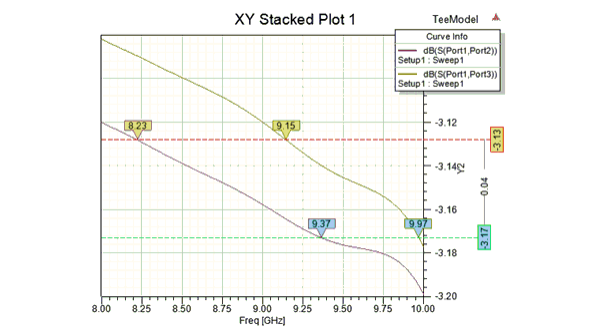Y Markers in stacked XY plots
Y Markers allows for easy analysis and comparison of curves at a particular y-coordinate. Y Markers can be used to compare stacked curves.
Creating Y Markers in Stacked Plots
There are two ways to create Y Markers in Stacked Plots. You can create a Y Marker for a particular stack or for all stacks. Right-clicking on any stack shows the following shortcut menu:
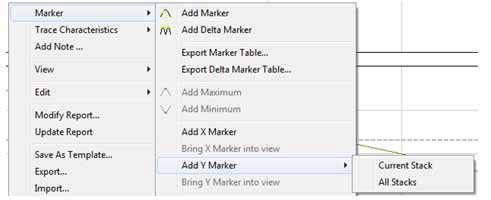
Add Y Marker > Current Stack creates a Y marker for the stack on which user performed right mouse button click. The following figure shows that a Y Marker was added to second stack only:
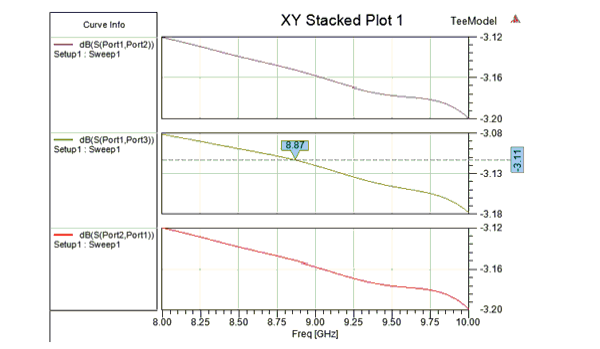
Add Y Marker >All Stacks creates one Y marker in each stack with same value. Initially this value is the minimum Y value of the Y ranges in all the stacks. This is shown is figure below:
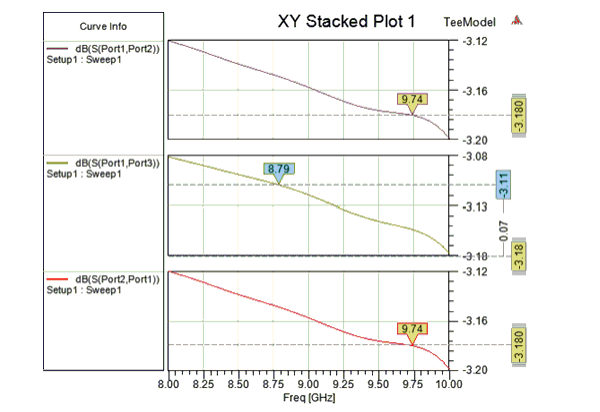
Notice that the Y Marker for All Stacks has a different appearance than the Y Marker for a particular stack, that is, it has double parallel lines above and below the Y Marker textbox.
Synchronized Y Markers
All the "same" Y markers for all stacks are synchronized, that is to say that if one Y marker is dragged or it's value is changed, all the "same" Y markers in all the stacks will change their position too. The following figure shows that when Y marker in bottom stack was dragged, Y marker in top stacks moved as well:
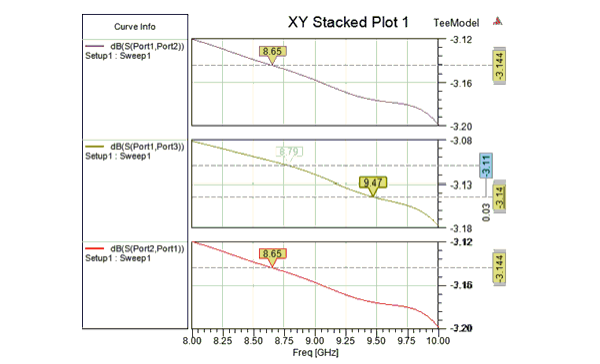
Also if a property of any one Y Marker is changed, all the "same" Y Markers show the change in property as well. For example the following figure shows that when the line color of a Y Marker in the top stack was changed to red color, a Y Marker in bottom stack show the same line color as well:
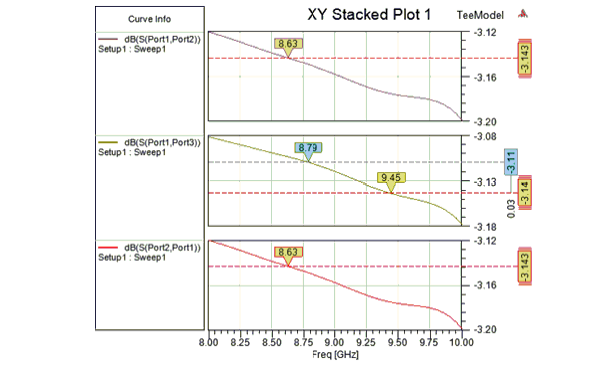
Automatic Y Markers for the new stack
When a new curve is added to the plot, it gets all the Y Markers for all stacks in other stacks, excluding the Y Marker for particular stacks. The following figure shows that when the new curve "dB(S(Port3, Port1)" was added, a Y Marker was added to it with value -3.14 and it has all the same properties as other "same" Y Markers in other stacks:
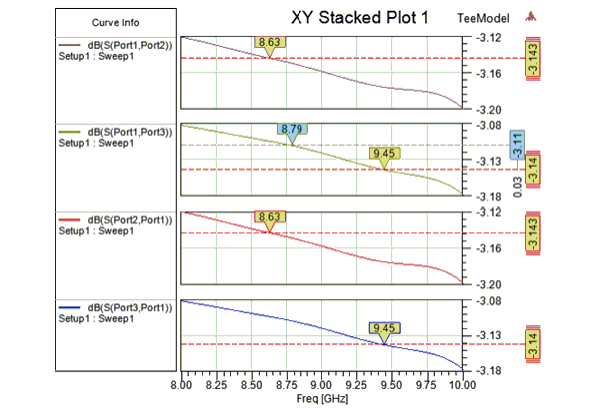
Y Marker Delta Annotations
When two more Y Markers are present in a Stacked Eye Diagram then delta annotations are shown between a pair of adjacent Y Markers in all the stacks, as shown in figure below:
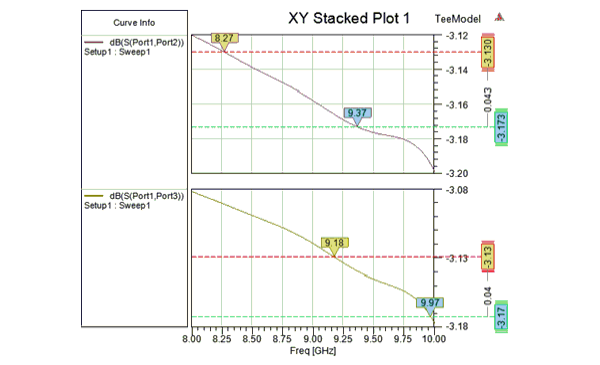
Deleting a Y Marker
To delete a Y Marker, select a Y Marker in any stack and press the Delete key. This action will also delete all the corresponding Y Markers in all the stacks. For example, when the Y Marker with value -3.13 (red Y Marker) was deleted from the bottom most stack, all of the corresponding Y Markers were also deleted:
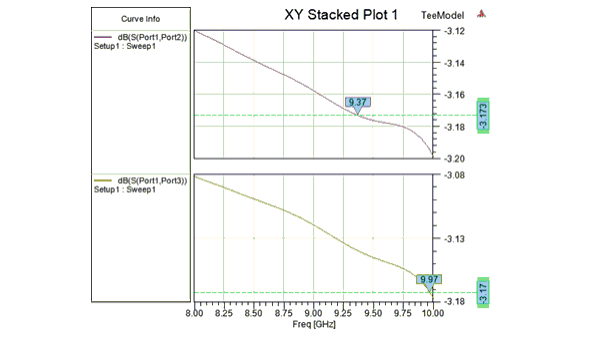
Note that on deleting a stack, Y Markers in other stacks are not affected.
Converting Rectangular XY Plot to Rectangular Stacked XY Plot
The following figure shows a Rectangular XY Plot with two curves and a Y Marker with value -3.15 (blue Y Marker):
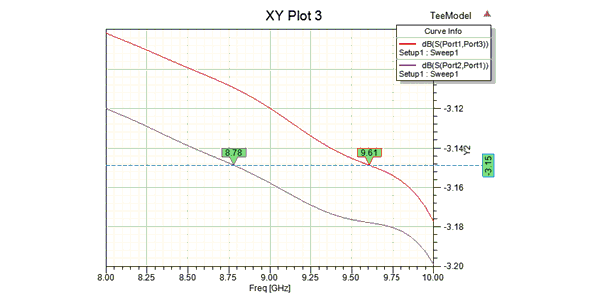
If you change the Display Type property of this plot to Rectangular Stacked Plot then a Rectangular Stacked XY Plot is created with each curve in its own stack and a Y Marker is shown in each stack with value -3.15 (blue Y Marker):
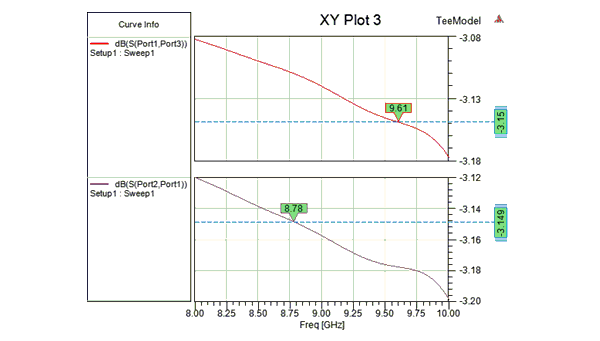
Similarly when you change a Rectangular Stacked XY Plot to a Rectangular XY Plot then all the "same" Y Markers in all the stacks are shown as a single Y Marker in Rectangular XY Plot as shown in following figures:
The Rectangular Stacked XY Plot in the previous figure, when converted to Rectangular XY Plot, looks like the following figure:
